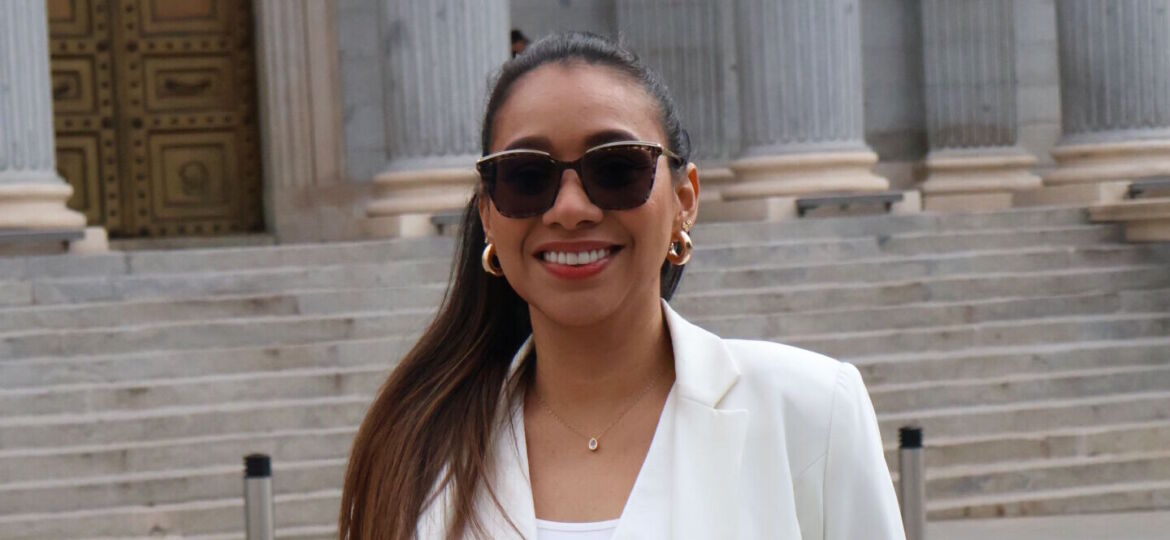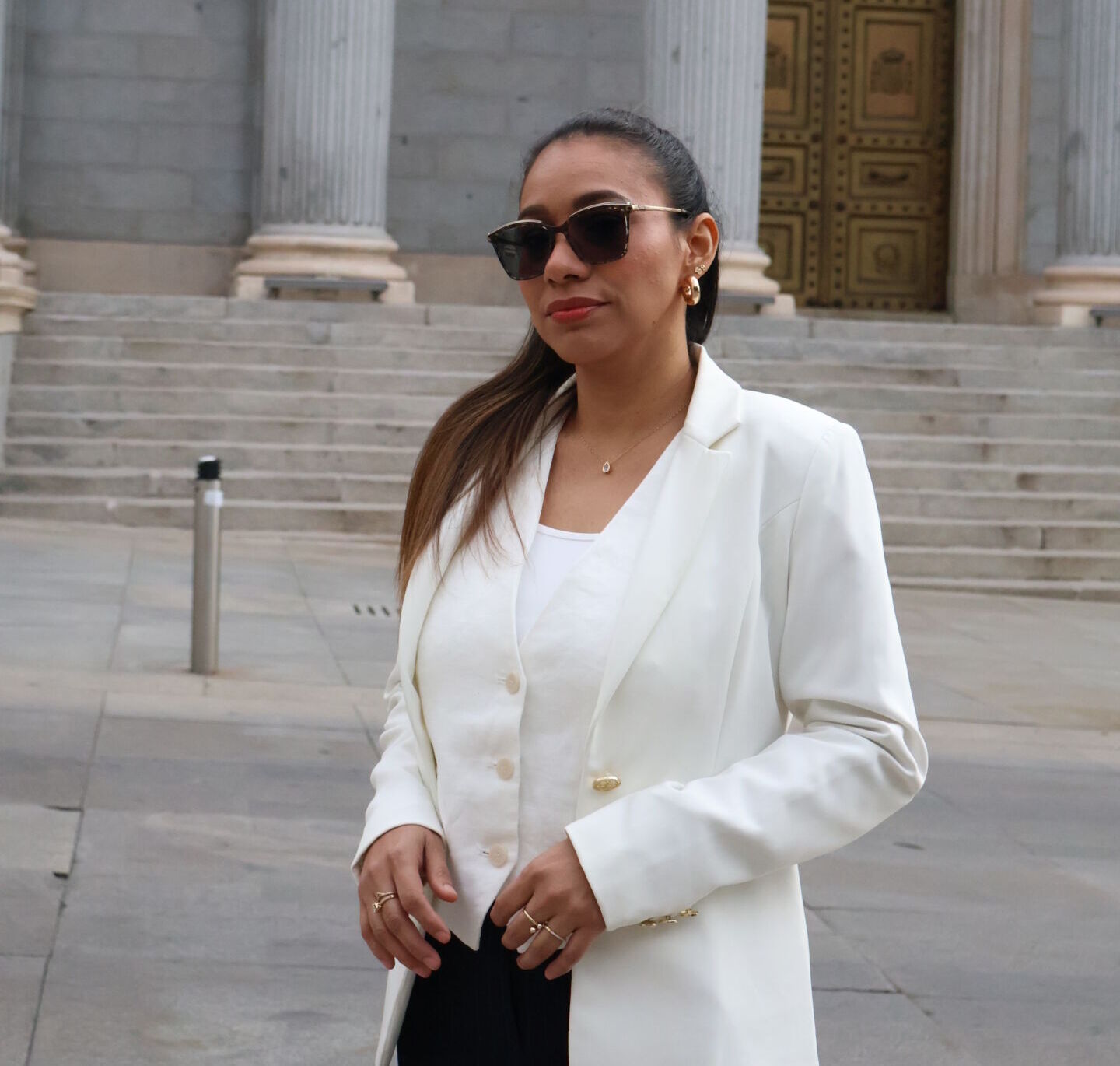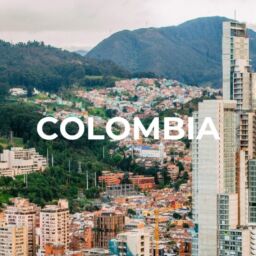
In conversation with Yesica Méndez Alvarado.
We’re very happy to share this interview with Yesica Méndez Alvarado, a courageous woman human rights defender from Colombia who is currently participating, with the accompaniment of International Action for Peace in our Temporary Relocation Programme. Yesica kindly agreed to have a conversation with us during her stay, and we found it not only moving on a personal level, but also deeply meaningful in the broader context of civil society work. Through her testimony, she offers a strong reminder of the impact that grassroots movements have in defending life, territory, and peace, and, at the same time, how important it is to create spaces for rest and solidarity across borders. Her voice also acknowledges the essential work carried out by many human rights organisations, often behind the scenes. We are honoured to accompany her, and to share a glimpse into her story, her work with Asociación Campesina del Valle del Río Cimitarra (ACVC-RAN), and the challenges and hopes she carries as she prepares to return home.
Yesica Méndez Alvarado is a campesina leader, human rights and environmental defender from Colombia. She plays a key role in the Asociación Campesina del Valle del Río Cimitarra (ACVC-RAN), an organisation that unites over 100 community structures in the Magdalena Medio region. As part of ACVC-RAN’s board of directors, political coordination, and general leadership, Yesica has been central to efforts promoting the Peasant Reserve Zone of the Cimitarra River Valley—an initiative focused on food sovereignty, biodiversity protection, and formalising land ownership in the face of land grabbing and resource exploitation. A graduate in social sciences and with a Master’s in geography, Yesica has become a prominent voice in national and international advocacy spaces, engaging with local, regional, and international actors.
Due to her work, Yesica has faced threats, persecution, and ongoing risks, like many human rights defenders in Colombia, where violence has escalated since the 2016 Peace Accord. In response, she is currently in temporary relocation in Barcelona, hosted by the Catalan Program for the Protection of Human Rights Defenders (PCPDDH)—an initiative led by the Catalan Agency for Development Cooperation (ACCD) and the Catalan Commission for Refugee Action (CCAR), with support from International Action for Peace (IAP).
This relocation is part of an ACVC-RAN strategy to ensure her psychosocial well-being and security, allowing her to continue her leadership with greater protection and support. From Barcelona, she continues to advocate for her community and denounce the worsening human rights crisis in the Peasant Reserve Zone.
Can you tell us about the kind of work you do in Colombia with the Asociación Campesina del Valle del Río Cimitarra (ACVC-RAN)? What are your main roles and responsibilities?
My name is Yesica Mendez Alvarado, and I hold multiple roles within the ACVC-RAN organization. I am part of the junta directiva (board of directors), as well as the political leadership and coordination team. I also serve as the advocacy coordinator. Over the past 20 years of working with the organization, I’ve taken on responsibilities across various areas, including organizational, political, environmental, and cultural dimensions. I initially joined as part of the equipo de campo (field team), where I gained deep experience working alongside campesina women leaders. Since then, I have contributed to the development and accompaniment of environmental and political projects in the region. I’ve also been involved in supporting artistic and cultural dynamics, facilitating spaces for community assembly, and strengthening the organizational structures that sustain our work in the territory.
We understand that you’ll soon be returning to Colombia: how do you currently assess the security situation? Do you feel ready to resume the work you were doing before, or do you think you’ll need to take a different approach?
The situation in my region is currently marked by a deepening humanitarian crisis. Armed groups are in open confrontation, fighting over territorial control. This has led to widespread violence, including the use of explosive devices and drones, and direct attacks on civilians and social leaders. The conflict has severely restricted the freedom of movement of local communities, even basic needs like buying food or medicine have become a challenge. In some areas, the integrity of the territory is under constant threat. The fighting has been particularly intense, forcing many people to flee, these are clearly not voluntary movements but it is forced displacement.
None of the armed actors are respecting the existing peace agreements, nor even the most basic humanitarian principles. Historical accords are being ignored, and international humanitarian law is openly violated. No one is being held accountable.
We, as part of ACVC, continue to denounce these grave human rights violations. We are actively pressuring the Colombian government to uphold its commitments, implement the peace accords, and protect human rights defenders. Simply being present and bearing witness is, for us, an act of resistance.
Even during my relocation, I have remained in close contact with my territory. I continue to engage with the processes and communities there. At the same time, I have taken this opportunity to build international networks and raise awareness in Europe through advocacy with institutions in Spain, the Netherlands, Belgium, and Norway. While being away from my region during such a difficult moment is personally painful, I remain committed to staying connected and using this time to rest, receive training, and strengthen the networks we’ve built. I hope that through this, we can continue to raise awareness and secure support for the communities back home.
What personal or professional benefits do you think you’ve gained from your experience in Barcelona? Is there anything you’ve acquired during this time that you believe could be useful or transformative for you and your community upon your return?
My experience in Barcelona has been truly important, both personally and politically. It allowed me to deepen my advocacy work and put into practice strategies for raising awareness about the situation in my region, especially in relation to the armed conflict. I was able to connect with institutional actors and international networks, gaining support for the interests of my community. I also established links with diasporas and solidarity groups across different European countries.
This experience has been enriching for the advocacy but also because it allowed me to collaborate with an organisation we’ve worked with for over 15 years. It gave me the opportunity to build a methodology of political engagement that I can now apply and adapt in future work. Sharing knowledge and strategies has helped me to think more practically about how to take action for peace and keep our networks active and connected.
This time abroad has also been an important personal exercise for putting myself in the centre and thinking about my role as a woman human rights defender. It gave me space to reflect deeply on the fact that this is not just a job, but a life decision,a commitment. Through this relocation, I have had the opportunity to rest, take care of my mental and physical health, and participate in meaningful training activities. These included human rights workshops, project formulation courses, and even a language class. I adopted a healthier lifestyle and received psychological support, which helped me gain clarity and strength.
All of this has been a real opportunity for self-care and self-knowledge. It has allowed me to pause, breathe, and consider whether I need to shift anything in how I approach my work or how I see my role. This balance of political engagement and personal reflection has been essential, especially in such a difficult moment for my region.
We’ve seen major political changes both globally and in Europe—such as the US and EU elections—which are having global political and economic impacts. In Europe, for example, there’s a clear trend of the EU turning inward, including in its relationships and aid. We’d like to ask: in recent months, have you perceived any changes in the context in Colombia? In particular, do you feel that space for civil society or humanitarian support is shrinking?
International cooperation has been shifting in recent years, and this past year has been particularly tough, especially after the withdrawal of U.S. support. This shift highlights the need for stronger involvement from European countries. Unfortunately, we’ve also seen changes in priorities, regions like Magdalena Medio and Catatumbo, which are deeply affected by the conflict and humanitarian crisis, are no longer seen as priorities in many aid programs. That’s why we’ve been actively engaging with Spanish and German authorities, urging them not to overlook these territories and to continue supporting peacebuilding efforts.
From what I’ve seen, many European leaders view the 2016 Peace Accord as the final step, as if Colombia is now a peaceful and safe country. But that’s far from the truth, the reality is that armed groups are still active, and social leaders are being killed every year. That’s why we’re calling on European institutions to stay involved, keep monitoring the situation, and use their influence to push for the full implementation of the Peace Accord.
While traveling in Europe, I was encouraged by the openness I encountered. Universities and civil society groups, especially in places like Italy and Spain, have shown real solidarity. I’ve had the chance to speak about Colombia in community spaces and universities: in Italy, for example, I met communities that are also dealing with issues like organized crime and marginalization. There were so many parallels between our experiences, and that made the conversations feel honest, inclusive, and with real mutual understanding. We even started building some concrete opportunities together, like a potential agreement with the Polytechnic University of Barcelona to launch projects back in Colombia. It’s been a chaotic and painful time, yes, but being here has shown me that I’m not alone, and that solidarity can open real paths forward. That gives me hope.
As a campesina woman and a leader of a local community, what kinds of obstacles have you faced throughout your journey? What role have gender and family responsibilities played in your experience (supporting your parents, being the main income provider, etc.)?
In my community, the defence of human rights has traditionally been a role assigned to men. However, the current situation has pushed women to step into political leadership more than ever before. After an orden de captura (arrest warrant) was issued against our organisation, targeting male members,we came together to decide how to respond. It was then that we, the women, chose to take on the responsibility of political and institutional action.
Today, most of the leadership positions within the organisation are held by women. This shift has been significant, not only politically, but also personally. It has opened up space for women’s empowerment and visibility. Still, there are many barriers. We live in a deeply patriarchal society where some people don’t fully trust women to make key political decisions. On top of that, family responsibilities remain a challenge. When I first became active, it was hard to leave my parents’ house and gain independence. My brothers never faced the same resistance. Thankfully, over time, my family has come to respect my independence.
That’s why the relocation programme was so meaningful, it recognised the unique obstacles women face. It gave me the chance to support my family financially while continuing my work. That balance made a real difference.

The Temporary Relocation Programme provides financial support for human rights defenders (HRDs) to relocate temporarily (up to one year), focusing on rest, capacity building, well-being, and network expansion. It adopts a holistic and gender-sensitive approach, addressing the specific needs of women, non-binary, and trans defenders. The programme aims to ensure sustainability post-relocation, so HRDs can safely continue their work upon returning home if conditions allow. It does not support permanent relocation or asylum and accepts referrals from ProtectDefenders.eu partners and affiliated host organisations.
(This interview was originally conducted in Spanish)



